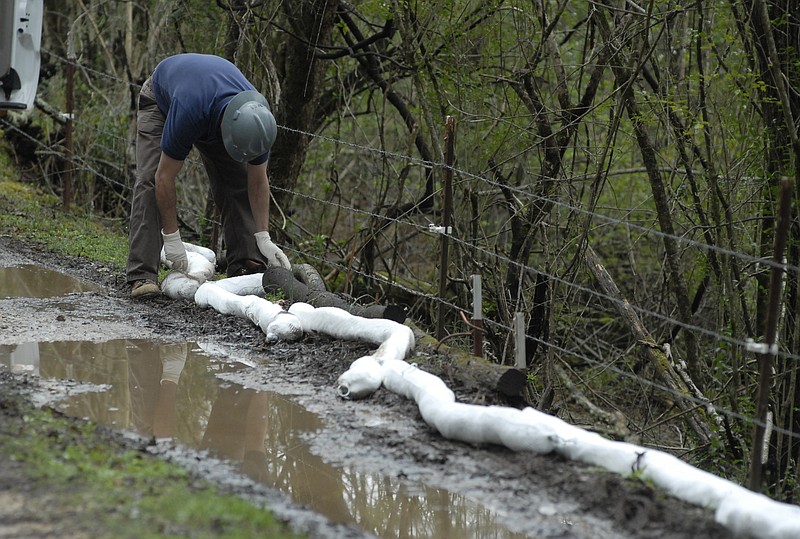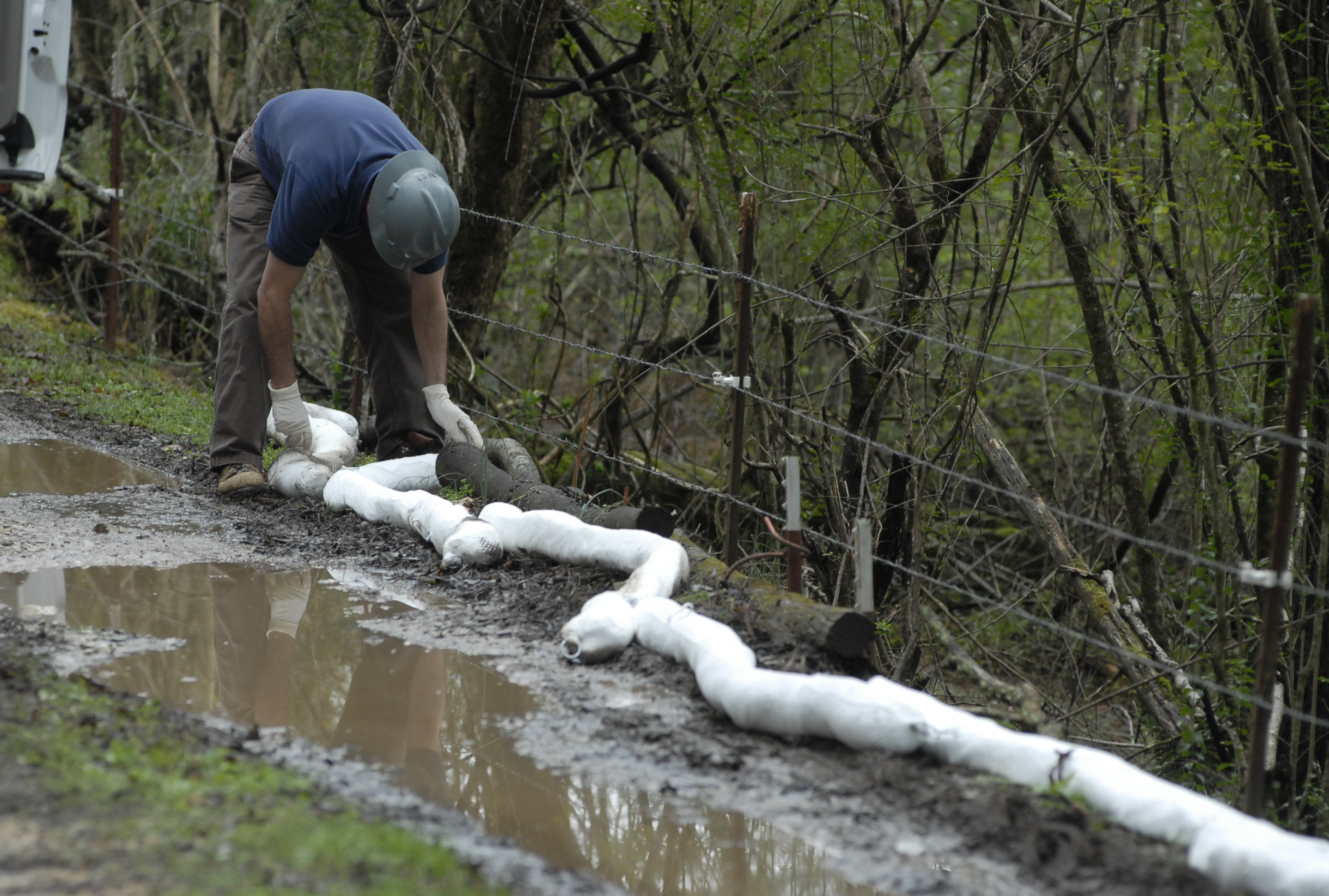A plummeting stock market and hair-raising job losses in 2007, 2008 and 2009 led many business owners to decide that the best course of action was to wait it out.
But a few in the Chattanooga area bucked that trend by hiring new workers, buying new machines and opening new offices.
The reasons vary for why each owner took the leap, but many are in niche markets unaffected by the market turmoil or were spurred on by regulations that make their business model more necessary than previously.
Ellen Gallant, who runs a company that cleans up everything from light asbestos to Superfund sites, opened two offices during the downturn -- one in Ackworth, Ga., in 2007 and another in Dalton, Ga., two years later.
"Our sales were up 10 percent from 2009 to 2010," said Gallant, president of Chattanooga-based Marion Environmental. "Over the last six years, we've probably doubled in size."
Instead of subcontracting her projects off to others, she keeps a cross-trained staff of 80 on hand who can handle everything from transportation to geology.
"Most companies, if they go on a job with a chemical spill, they have to bring in a third party," she said. "We can do it all."
With such a large staff it's important to avoid idle hands, so Gallant makes sure everyone always has something to do.
"I might have one fellow who has a class-A CDL, who can also run equipment and is also an environmental specialist for asbestos; so that's how I keep them busy -- everybody can almost do everything."
She's added 20 employees during the recession, and said a company like hers can bring in more than $10 million per year.
"We've seen a lot of companies come and go, but we continue to diversify," Gallant said. "I think I want to add another office."
LASER BEAMS
Some companies add offices, others add giant laser beams.
Bill Hewgley's Metalworking Solutions bought a new metal-cutting machine in 2010, the same time that other manufacturers were fleeing to China or pleading with the federal government for emergency aid.
Now the 61-year-old said he'd like to add a plant in Atlanta to meet demand.
"We're growing 40 percent in a year that everybody else says the world is ending," Hewgley said.
His secret, if it could be considered one, is just hard work and honesty, he said.
"We just got our hands dirty and our backs sweaty," he said.
It also helps that his state-of-the-art equipment can turn around orders more quickly than competitors, and that his employees get bonuses if the company makes money.
"We basically have combined futuristic technology and processes with doing business the way your grandparents did business, when a handshake meant more than a contract," he said. "I think we're showing how you can manufacture in America again."
Bob Shaw, founder of Engineered Floors and formerly of Shaw Industries, would agree with him.
Shaw built two new North Georgia plants from scratch in as many years, moving to directly compete with his namesake at a time when the biggest players in the market were shuttering plants and shedding thousands of jobs.
"They thought the best years of the carpet industry were over with, but I see opportunity here," said the carpet pioneer.
He'll employ more than 1,100 workers by the end of 2012 at his two factories, and plans to expand from selling carpet for rental properties to the single-family housing market.
Arch Plastics also added workers during the recession, creating three new production lines and hiring 25 workers from 2009 through this year to manufacture the bottles for Chattem's ACT Mouthwash, said accounting officer Jenny Thomas.
"That was expansion five; this year we've started expansion six," Thomas said.
The company's latest expansion, which she said will be complete by March, entails adding one more production line and five to 10 workers.
"Business is good," she said.
TURBULENT WATERS
Such expansions are in sharp contrast to the overall economic slump of the past three years in the region.
From the peak employment level reached in the summer of 2007, metropolitan Chattanooga shed more than 22,000 jobs in the following two years. Employment in the region is still nearly 15,000 jobs below where ii was three years ago. During the recession, employment fell nearly 10 percent among all employers, according to the U.S. Bureau of Labor Statistics.
The rate of job losses has been twice as steep in metro Dalton, where nearly one in five, or 15,600 employees, have lost jobs since the employment peak there in 2007, federal figures indicate.
Amid the worst economic slump since the Great Depression of the 1930s, expansion plans sometimes go awry, as MarineMax found out when its second Chattanooga location at the Lakeshore Marina ran aground.
Originally announced in early 2011, the new location is already closed, said Scott Manning, business manager for MarineMax of Chattanooga.
"The overall market, we have changed dynamically," Manning said. "It's not easy at all."
His Clearwater, Fla.-based parent company earned $119.8 million in the three months ending Sept. 30, down approximately 3.7 percent, or about $4.6 million, from the same period the year before, and same-store sales fell 2 percent, said Michael McLamb, chief financial officer.
Though the company increased its margins and unit sales, for the full year, it still lost $5.2 million in the quarter as customers remain leery of big-ticket items such as boats.
"Even the way we ap- proach consumers has changed," Manning said. "You have to wake up and be 110 percent on your game."

